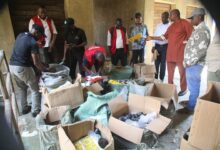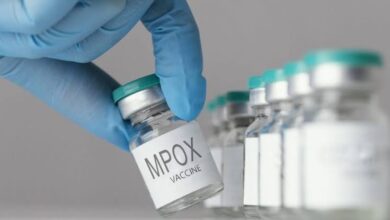WHO Partners Nigeria To Boost Diagnostic Capacities During Outbreak

In a bid to improve the country’s preparedness to combat disease outbreaks, the World Health Organisation (WHO), has partnered Nigeria’s Federal Government to launch the National Essential Diagnostics List (NEDL).
Speaking during the launch of the document on Monday in Abuja, the Minister of Health, Dr. Osagie Ehanire, said: “The EDL is anticipated to improve patient care, in-country diagnostic capacity, affordability of tests, regulation and quality of diagnostic tests, and capabilities of national laboratories”.
Represented by the ministry’s Director of Dentistry, Dr. Abolanle Along, the minister stated that this first edition of the NEDL is a guidance document needed to prioritise critical health In-Vitro Diagnostics (IVDs) based on wide availability and affordability through the national health system.
He said it would support the selection, procurement, supply, donations or provision of IVDs, adding that the NEDL enlists 145 diagnostic test categories comprising 65 general IVDs to aid the diagnosis of a range of disease conditions and 80 others.
The WHO Public Health Emergency Advisor, Dr Alexander Chimbaru disclosed that following increased recognition of the importance of diagnostic testing in healthcare particularly as it plays a major role in achieving Universal Health Coverage (UHC), the World Health Organisation (WHO) developed an Essential Diagnostics List (EDL) to address the lack of access to tests and testing services in many countries.
Chimbaru further noted that the WHO Essential Diagnostic List (EDL), which was first published in 2018, is a list of recommended in-vitro diagnostics that should be available at the point of care and is intended as a guidance document for countries to create their own national list based on their local context and needs.
“The overall goal of the EDL is to improve access to testing, diagnostic capacities during the outbreak, affordability of test, regulation and quality of diagnostic test”.
“The National Essential Diagnostic List is anticipated to complement and enhance the impact of the Essential Medicines List (EML) which has recorded a great improvement in availability and affordability of medicines and quality of patient management”, he said.
He therefore, congratulated Nigeria for the achievement as the country joined the list of first countries like India, Bangladesh and Pakistan, to adopt the WHO concept of EDL and has also produced one that is aligned to the disease prevalence in their country.
He also encouraged all the states and health facilities to use the document as this would not only improve the health system capacity to reach accurate diagnosis but will save health resources wasted on inappropriate treatment and long stay in the hospital.






